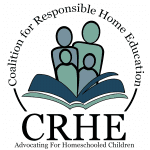View series intro here, and all posts here.
In 2013, Alabama legislators introduced a mandatory reporting law. While all states require teachers and certain medical professionals to report suspicions of child abuse, some go further and make all individuals mandatory reporters. The Alabama bill read as follows:
Any person who knows or has reasonable cause to believe or suspect that a child has been abused or neglected or who observes any child being subjected to conditions or circumstances that would reasonably result in abuse shall report the same . . .
In other words, the bill would have required “any person who knows or has reasonable cause to believe or suspect that a child has been abused or neglected or who observes any child being subjected to conditions or circumstances that would reasonably result in abuse” to report their concerns. HSLDA objected. Their position was as follows:
This bill is well-intended, but it is much too broad. It would require even children of all ages to make reports of abuse or neglect and subject them to prosecution if they failed to do so. Young children should not be responsible for making a determination of whether abuse or neglect has occurred and then reporting it to authorities.
Another problem with this bill is that it requires reporting something that is not even abuse or neglect. Families will be investigated because someone reported “conditions or circumstances” that in the opinion of the reporter could result in abuse. Persons should be investigated only if there is evidence of actual abuse, not conditions or circumstances that might lead to abuse.
This bill should be opposed.
From where I’m currently standing, I don’t see a problem with requiring people to report “conditions and circumstances that would reasonably result in abuse.” Not all social services visits are investigations. It is not uncommon for social workers to offer at-risk family resources or tools, helping them along and preventing things from descending into legal abuse.
As for children being required to report, I did some digging and found that the language in the bill is typical for universal mandatory reporter states, which require any “person” who suspects abuse to report it. So while I would have a problem with penalizing children for not reporting their own abuse, that’s not what’s going on here.
But I promised you more than this, didn’t I? HSLDA goes further—much further.
Have a look at this, also from 2013:
Colorado—Senate Bill 220: Expands Definition of Mandatory Reporters
Summary:
Senate Bill 220 expands the definition of mandatory reporters for potential child abuse or neglect to include emergency medical service providers.HSLDA’s Position:
Oppose.
No explanation is given, as though no explanation is needed. The bill ultimately passed through the legislature and were signed by the state’s governor. But HSLDA’s opposition to the bill makes it clear just how far its opposition to mandatory reporting laws goes—all the way. What possible reason could you have for not requiring emergency medical personnel to report suspected child abuse or neglect?
Ostensibly, HSLDA opposes mandatory reporting laws out of concerns about false reports. But then, both Alabama and Colorado already penalize knowingly false reports. Perhaps the concern is accidental false reports. But then, that is why there are investigations—to determine whether a tip can be substantiated.
What is the practical effect of opposing a law that would make emergency medical providers mandatory reporters? Well, without this law emergency medical providers would not be required by law to report suspicions of child abuse and neglect. In other words, it would be legal for an emergency medical provider to notice evidence of abuse or neglect and yet choose not to report it. In other words, the practical effect of opposing a law like this would be to make it harder for child abuse and neglect to come to light.
From what I’ve read of their materials, it appears that HSLDA would like to prevent social services investigations in all but the most severe cases—cases where an investigation hardly need take place at all, so obvious is the evidence. The organization manifests a lack of understanding about how abuse manifests itself and how it affects children. Abusers are generally very good at hiding their abuse—and there is no dichotomy of 100% good parents on the one hand and 100% evil parents on the other. When HSLDA defends child abusers—and they do—they likely do so in part because they have a caricatured image of what an abusive family looks like.
For HSLDA, social services investigations are primarily something that get in the way of parents doing their thing. They are an annoyance to be avoided. By opposing mandatory reporting laws, HSLDA works to cut down on the number of child abuse and neglect reports made. This makes sense in terms of their longterm vision—HSLDA would like the state to have as little power over parents as possible. As a result, the organization seems to weigh these child abuse reports in terms of parental inconvenience, ignoring the negative affect their efforts to cut down on reports made may have on the children involved.
One final note. It is worth asking why an organization whose mission is keeping homeschooling legal would insert itself in mandatory reporting laws. One reason is that homeschooling parents may be reported for educational neglect. But there’s something else involved too: HSLDA defends its member families against accusations of child abuse. Cutting down on child abuse and neglect reports furthers their organizational interests.
Whatever the precise reason for HSLDA’s involvement in mandatory reporting laws, this is another example of HSLDA taking positions that affect far more children than those who are homeschooled.















